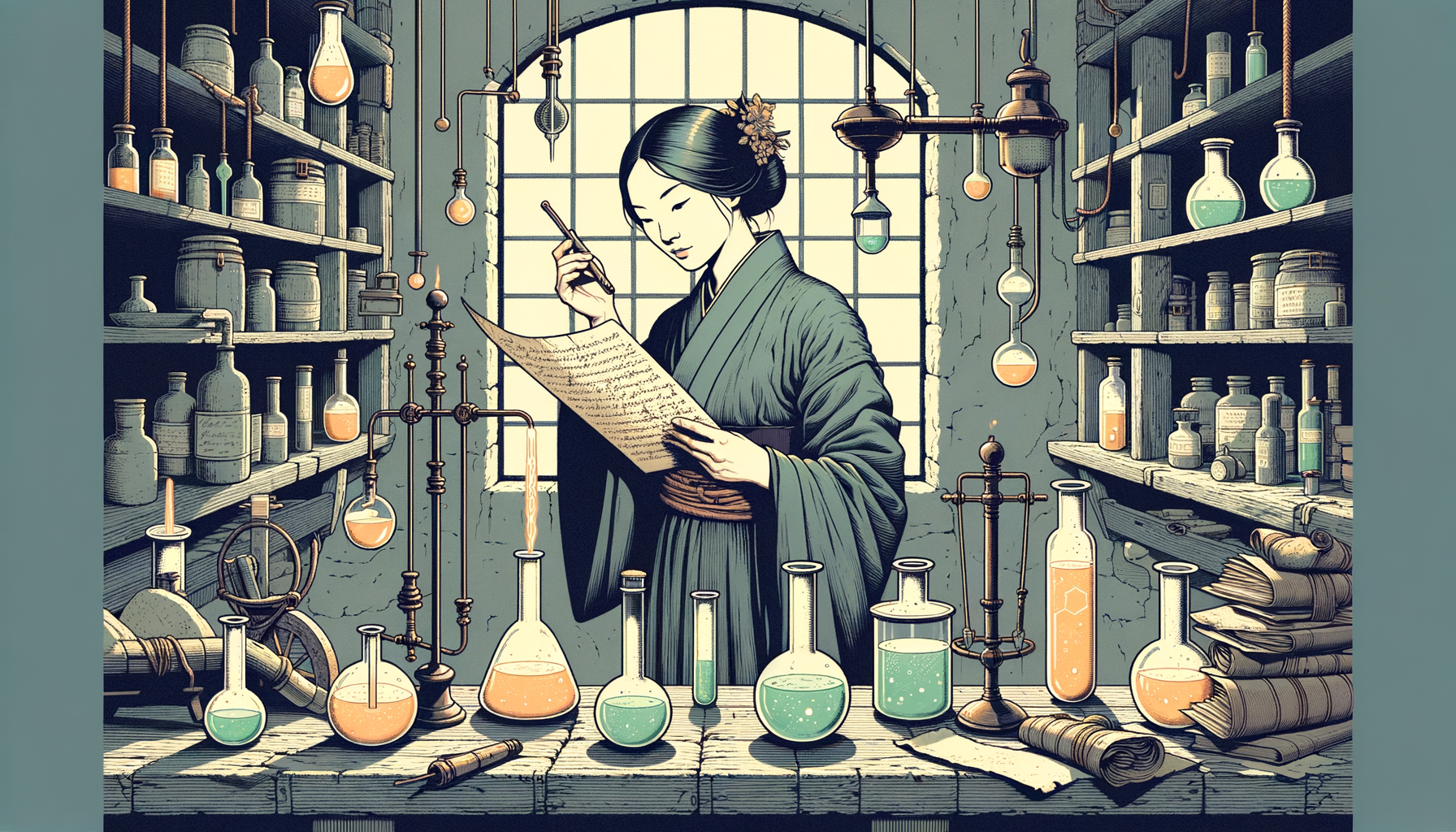Introduction
In the labyrinth of human history, the enigmatic practice of alchemy holds a unique position. Often dismissed as a primitive precursor to modern chemistry, alchemy’s profound influence on the development of scientific thought and its enduring cultural significance cannot be understated. This article delves into the ancient origins of alchemy, its modern applications, and its surprising relevance in contemporary science.
Alchemical Origins

The genesis of alchemy is shrouded in the mists of antiquity, with its roots reaching deep into the fertile soils of ancient civilizations. The term ‘alchemy’ itself is derived from the Arabic ‘al-kimia’, a reference to the art of transmutation. The practice was a complex amalgamation of philosophy, mysticism, and proto-science, with practitioners seeking to understand the fundamental nature of matter, life, and the cosmos.
The earliest recorded alchemical practices can be traced back to Hellenistic Egypt, where the fusion of Greek philosophy with Egyptian and Babylonian technological knowledge gave birth to a unique intellectual tradition. Alchemists of this era were not merely interested in the transmutation of base metals into gold, but also sought the ‘elixir of life’, a substance believed to confer immortality.
The alchemical tradition was not confined to the Mediterranean world. In the East, Chinese and Indian alchemists pursued similar goals, albeit through different methods. Chinese alchemists, for instance, focused on the quest for immortality, while Indian alchemists developed sophisticated metallurgical techniques. Despite the geographical and cultural differences, these diverse alchemical traditions shared a common goal: the quest for knowledge and mastery over the natural world.
Modern Alchemical Applications
While the arcane rituals and esoteric symbolism of ancient alchemy may seem far removed from the modern world, its influence is still palpable in various fields. The most obvious manifestation of this is in the realm of chemistry. The alchemical quest for transmutation laid the groundwork for the development of chemical reactions, the understanding of atomic structures, and the creation of new substances.
Beyond chemistry, the principles of alchemy have found application in psychology. Carl Jung, the Swiss psychiatrist, drew heavily from alchemical symbolism in his exploration of the human psyche. For Jung, the alchemical process of transmutation served as a metaphor for the process of individuation, the journey towards psychological wholeness.
In the realm of art and literature, alchemical symbolism continues to inspire creators. From the mystical poetry of William Blake to the fantastical narratives of J.K. Rowling’s Harry Potter series, the influence of alchemy is evident. The enduring appeal of alchemical themes speaks to their universal resonance and their capacity to encapsulate the human quest for knowledge and transformation.
Alchemy in Contemporary Science
In the realm of contemporary science, the spirit of alchemy lives on. The quest for knowledge and the desire to manipulate and understand the natural world are as relevant today as they were in the times of the ancient alchemists. Modern science, in many ways, is the direct descendant of the alchemical tradition.
In the field of nuclear physics, for instance, the dream of transmutation is no longer a mystical pursuit but a scientific reality. Modern particle accelerators can transform one element into another, albeit at a cost far exceeding the value of gold. In the realm of medicine, the search for the ‘elixir of life’ continues in the form of research into life extension and regenerative therapies.
Even in the field of artificial intelligence, the influence of alchemy can be discerned. The creation of artificial life, a goal that eluded ancient alchemists, is now within the realm of possibility. The development of self-learning algorithms and advanced robotics represents a modern form of the alchemical quest for the ‘homunculus’, an artificial human.
Conclusion
In conclusion, the ancient practice of alchemy, far from being a relic of a bygone era, continues to influence modern thought and practice in surprising ways. Its enduring legacy is a testament to the timeless human quest for knowledge, mastery, and transformation. As we continue to push the boundaries of scientific understanding and technological capability, we are, in many ways, walking in the footsteps of the ancient alchemists.





